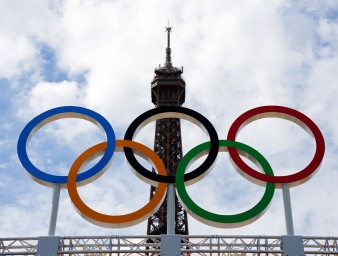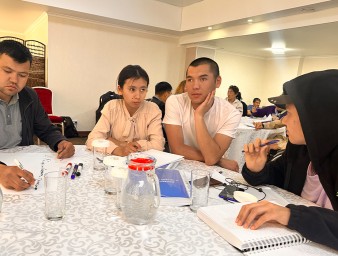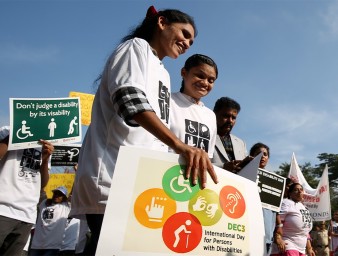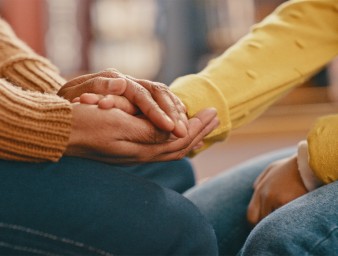Sierra Leone: Equal opportunities for persons with disabilities
22 May 2013
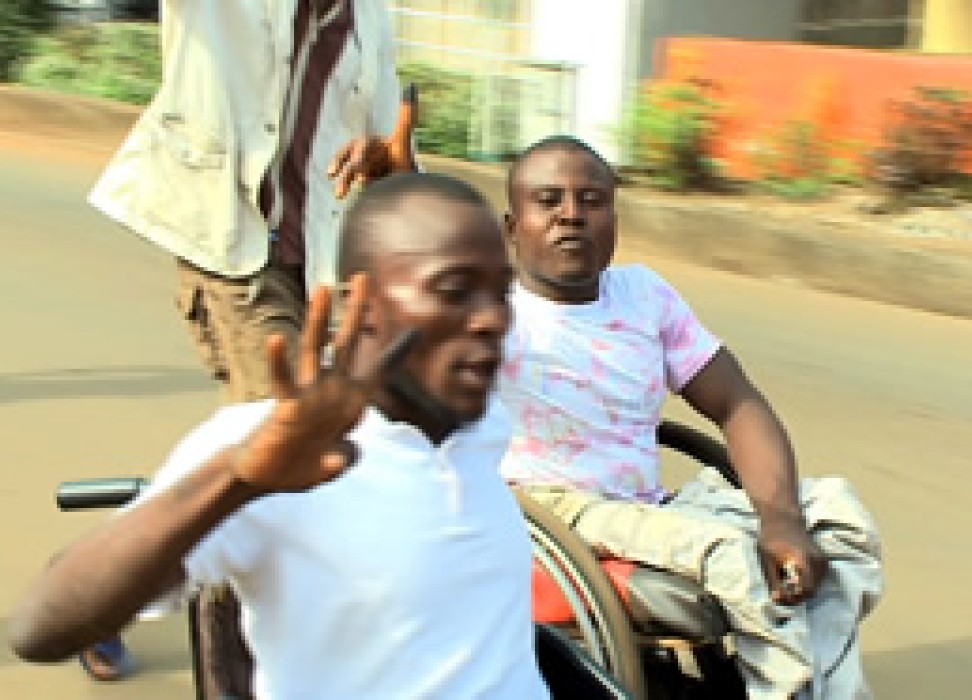
“I escaped but was caught by other rebels who took me and ….then they chopped off both my hands,” says Alhaji Jusu Jarka, who works as a security guard at the UN Mission in Sierra Leone. “They felt that by cutting people’s hands, killing, they would get recognition.”
Alhaji Jusu Jaka, once a successful businessman, spent six months in hospital. He is now one of the estimated half a million people in Sierra Leone living with a disability, according to the United Nations. Some are victims of the tumultuous conflict period of the 90’s in the West African country –a decade-long war that left many amputated- and others are disabled since birth or through accidents.
The marginalisation of persons with disabilities has been prominent in Sierra Leone, particularly in the political arena. But a new law is now in place to ensure equal opportunities for this group.
To guarantee that persons with disabilities enjoy the same opportunities as others, the Persons with Disability Act, inspired by the United Nations Convention on the Rights of Persons with Disabilities, was introduced in 2011 to ensure their rights are enshrined in the country’s constitution.
“There are some key highlights of the law,” explains Francis Kabia,the Director of Social Welfare in the ministry in charge of disabilities. “It talks about establishing equalization of opportunities whereby a disabled person should have equal opportunities as an able person; then, it talks about prohibition of discrimination against persons with disabilities, this means that an individual should not be discriminated against as a result of his deformity or his disability; and then, it talks about the establishment of the national commission of persons with disabilities.”
In November 2012, the first general election since the end of the civil war to be organized without UN oversight was held under the backdrop of this new law empowering persons with disabilities.
Beatriz Balbin, the UN Human Rights Representative in Sierra Leone, outlined the outcome of a UN report that called for active participation of persons with disabilities in the political process, particularly the general election.
“The report made a number of recommendations both to state institutions and international partners and donors to ensure that they could be active participation to vote and be voted for by persons with disabilities,” says Balbin. “I would say the results have been mixed so far. In terms of being voted for, a number of representatives that were there before actually have not been nominated. However, there are new persons that have come in as candidates for the local and for the parliamentary elections.”
This year marks the 20th anniversary of the World Conference on Human Rights, which led to the adoption of the Vienna Declaration and Programme of Action, and the establishment of the UN High Commissioner for Human Rights to oversee the international human rights framework, promote human rights and protect individuals against abuse. There are ten core international human rights treaties, some of them being supplemented by optional protocols dealing with specific concerns. The Convention on the Rights of Persons with Disabilities was adopted by the United Nations General Assembly on 13 December 2006, and opened for signature on 30 March 2007. Following ratification by the 20th party, it came into force on 3 May 2008.
22 May 2013
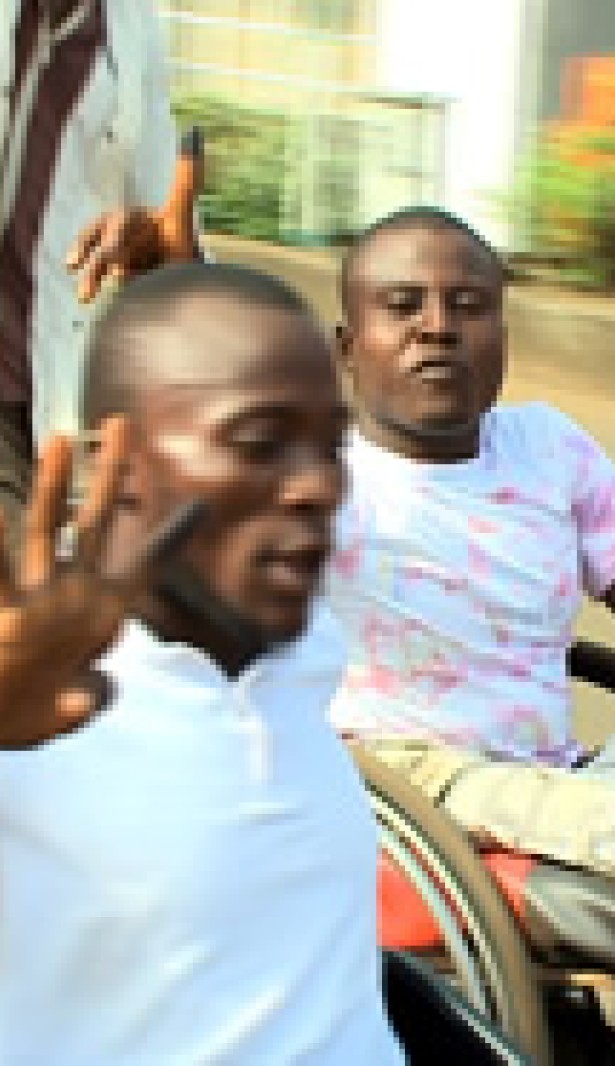
VIEW THIS PAGE IN:
